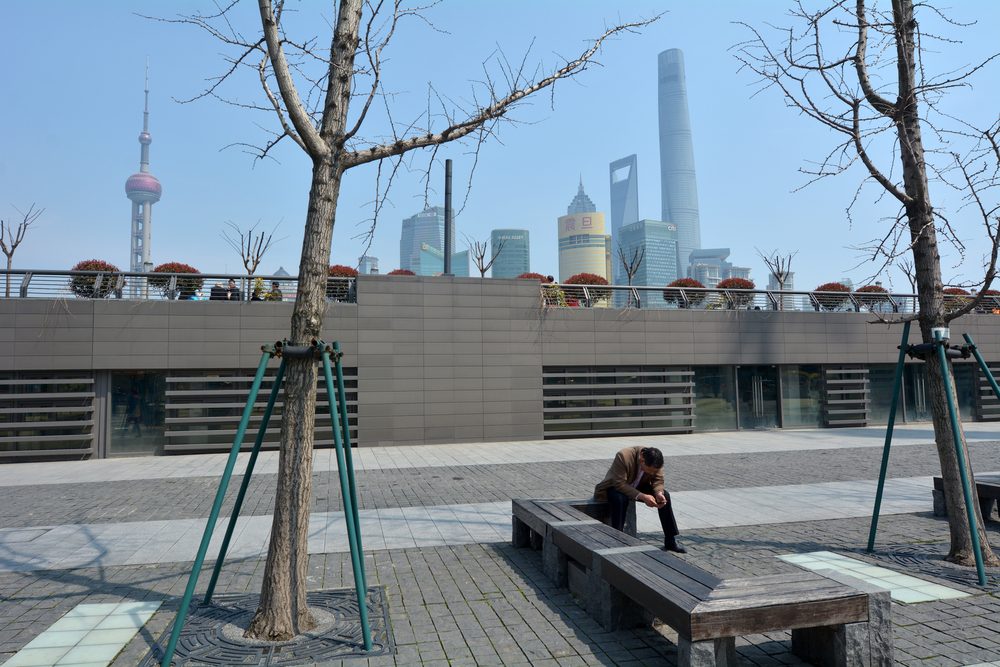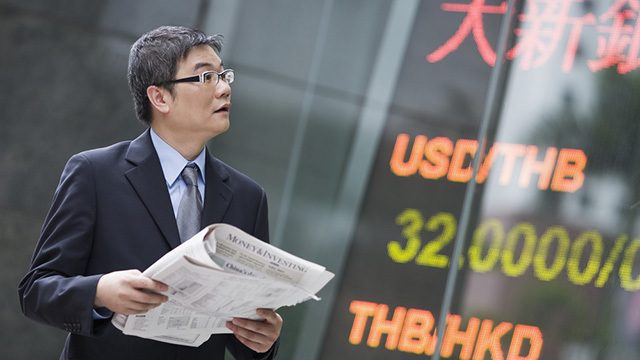SUMMARY
This is AI generated summarization, which may have errors. For context, always refer to the full article.

MANILA, Philippines – Although the Philippines’ attention is fixed on Greece’s probable exit from the euro, economists said the country should be more worried about the impact of a bigger loss in one of the world’s biggest financial markets: China.
China’s stock market has lost more than $3 trillion in value in less than a month. Its markets continued to plunge this week, erasing about 37% off their evaluation from the June 12 peak.
Greece’s total debt is $382 billion, Business Standard said in a report.
The scale of China’s stock market is about twice the market capitalization of all stocks traded in India.

Brace for rough sailing
“China meltdown is more worrisome than Greece,” University of Asia and the Pacific (UA&P) senior economist Victor Abola responded via text message.
China is the Philippines’ third largest export destination, taking in some 12% of total exports. While the Philippines has minimal trade to Greece with only 0.01% of total exports and 0.02% of total imports from Greece last year. (READ: Greek crisis has no direct impact on Philippines)
“GDP (gross domestic product) growth target among ASEAN (Association of the Southeast Asian Nations) members, including the Philippines, may also be slashed significantly,” Abola said.
The Philippine government said it expects a full-year economic growth of 7% to 8% this year, but economists and business leaders warned that the country might struggle to realize this.
“I think investors will continue to rush the exits across Asia-Pacific including the Philippines, as they worry about how the China meltdown will affect us,” Abola said.
The benchmark Philippine Stock Exchange index joined a regional sell-off, plummeting 79.22 points or 1.06% to close at 7,363.43 on Wednesday. This is its lowest since closing at 7,384.27 on June 10.
“Little room for optimism remained as investors across the Asia-Pacific region rushed toward the exits on concerns over the persisting sell-off in Chinese markets,” Jason Escartin, market analyst from online brokerage firm 2tradeasia.com, said in an email.
The mining or oil sector continued to post a steep decline by 2.36% as oil prices remained weak.
“We should brace for some rough sailing, but we’re built for this kind of weather,” Bank of the Philippine Islands research officer Nicholas Antonio Mapa responded via email.
Short-lived impact
But the impact of the China meltdown to the Philippines’ financial markets is likely to be short-lived.
The contagion is definitely something to be expected as risk assets, regardless of relative quality, are unloaded. The PSE was not spared, MAPA said.
“But, this may be a phenomenon in the short-term given our superior fundamentals as an ASEAN region, plus the Philippines continues to sport sizeable gross international reserves and boasts a current account surplus,” BPI’s Mapa said.
Closer to home, China’s problem on its stock market could have a bigger impact on the country than the Greek crisis, said Alvin Ang, Ateneo de Manila University Economics professor and EagleWatch senior fellow.
“The stock markets are immediate barometers of an economy’s fundamentals. A decline of almost 30% in a month shows that the Chinese economy may be weakening. This is where the connection with the Philippines and other developing countries are exposed,” he explained.
Should China’s market fall accelerate, other countries outside Asia will be hit, economists warned, as it remains the largest consumer of goods and commodities in the world. – Rappler.com
Businessman worried about stock prices image and worried man sitting near Shanghai Stock Exchange image via Shutterstock
Add a comment
How does this make you feel?
![[ANALYSIS] A new advocacy in race to financial literacy](https://www.rappler.com/tachyon/2024/04/advocacy-race-financial-literacy-April-19-2024.jpg?resize=257%2C257&crop_strategy=attention)


![[In This Economy] Can the PH become an upper-middle income country within this lifetime?](https://www.rappler.com/tachyon/2024/04/tl-ph-upper-income-country-04052024.jpg?resize=257%2C257&crop=295px%2C0px%2C720px%2C720px)

There are no comments yet. Add your comment to start the conversation.